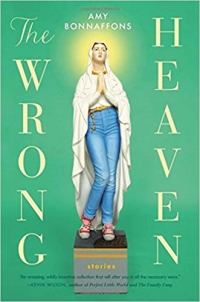#SAD!: Doonesbury in the Time of Trump by G.B. Trudeau
 Friday, November 2, 2018 at 10:42AM
Friday, November 2, 2018 at 10:42AM 
Published by Andrews McMeel Publishing on September 18, 2018
Satire doesn’t change minds, but good-natured mockery can be therapeutic. That, at least, is Garry Trudeau’s theory. Even as President Trump mocks everyone he perceives as an enemy (in childish terms that are far from good-natured), he hates being mocked. Hence this collection. And since I have been a Doonesbury fan from Doonesbury’s first appearance in my local paper a very long time ago, I am well acquainted with the therapeutic benefits of Trudeau’s political humor. Never has it been needed more.
It’s easy to mock Donald Trump. Every time he opens his mouth or Twitter account, he provides a satirist with new material. Trump’s self-aggrandizement, his claims that everything to which he is connected is the biggest or the best, have become a form of unwitting self-mockery. Trudeau’s satire zeroes in on the president’s ill-informed opinions (“TrumpFacts” is an alternative reality service that provides callers with alternative facts), his rambling, vague, and self-contradictory proclamations, and his habit of blaming everyone around him for problems of his own making. I particularly liked the strip in which Trump blames Paul Ryan for failing to keep the promises that Trump made (“the best promises in history”).
Trudeau widens his net to mock Breitbart, Bill O’Reilly, disinformation in Texas textbooks, and voter suppression efforts, among other political targets. He also takes an occasional break to check in with Zonker’s quest for spiritual awareness (and marijuana business), Roland Hedley’s tweets, Joan Caucus’ takes on post-feminism, and Sam’s disbelief that a feminist movement was ever needed to advance an idea as obvious as gender equality (it’s like a movement to make people believe in gravity).
The first pages document the Trump campaign and the rest of the strips track the early stages of the Trump presidency. He also takes some digs at Rick Perry, Marco Rubio, the wall, congressional hypocrisy, and evangelical hypocrisy (Christian values aren’t what they used to be). Isn’t it fun to live in the age of Trump?
RECOMMENDED



